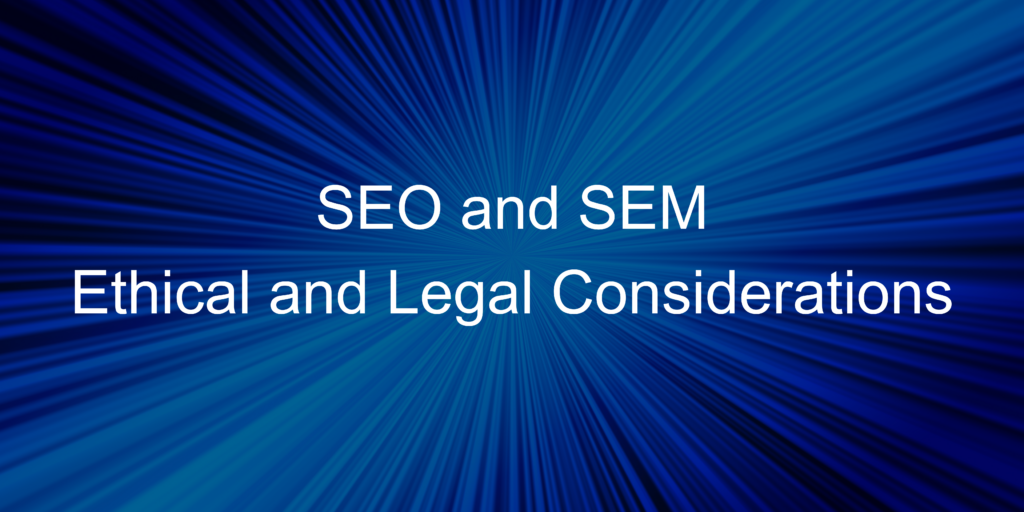
Ethical and legal considerations are crucial for SEO and SEM. It prevents misleading or misinforming content. Ethical considerations require a commitment to social responsibility and providing honest information. This includes data privacy and accountability which can be reflected in the General Data Protection Regulation (GDPR). (Wolford).
My chosen real-life case is Overstock’s controversy with discounts and price comparisons. According to Forbes, the CEO Patrick Byrne had been offering discounts in exchange for backlinks. They were penalized by Google and lost their ranking position in search results. Overstock was also accused of violating false ad practices by using comparison algorithms and creating unrealistic price comparisons.
Unethical Tactics
Backlinks that are purchased or made to be an incentive for discounts instead of earned properly. Overstock promised discounts if backlinks were provided to manipulate search engines. (Debter. 2021). Sneaky redirects can also reflect this backlinks situation that Overstock has done as well. Another unethical tactic that is similar but not specifically done by Overstock is trading links which can be disruptive.
Some companies tend to overuse keywords which can cause issues with content being relevant enough and can manipulate search engine rankings. Another unethical tactic that some engage in could be duplicate content which can be repetitious and lack originality. A final unethical tactic that can be engaged with is knock as clickbait headlines that provide misleading text or info to attract clicks. Overstock was accused of this when trying to create unrealistic price comparisons. (Debter. 2021).
Difference of Ethical and Unethical
Ethical SEO is generally used to describe the use of accepted search engine optimization techniques or code of conduct. These are clearly visible to visitors. (Balanco). Unethical SEO is considered spam. They can be sneaky and tend to cut corners or cheat with hidden things like text or links. (Balanco).
Ethical Practices
- Using different links for separate website pages.
- Using relevant content or keywords for visitors to the website.
- Website updated with regular relevant content such as press releases or blogs.
- Being up to date on keywords being used by visitors and regulations across platforms.
- Links not exchanged for low quality or misleading information.
- Ensuring a site map is included so search engine spiders can index the site effectively.
Unethical Practices
- Using too many keywords and hidden text on the website which is known as keyword stuffing.
- Making use of automated queries without permission from search engines.
- Using a method of “cloaking” where content is submitted to search engines in a way that some text isn’t clearly obvious to a targeted audience.
- Using duplicated content.
- Exploiting security viruses or badware that can be installed when a site or page is opened.
- Trading links that can be disruptive to an online user.
- Plagiarizing or using auto-generated content to copy other’s work.
Ethical Benefits
The benefits of being ethical bring customer loyalty, increased trust and credibility. It also enhances better decision making processes and reduces the risks taken in legal manners. “Marketing tools are an essential means of success that can or cannot be achieved. SEO is one such practice that can be used to better market a website, as well as its products and services by means of clever brand awareness.” (Balanco). When practices are ethical, you gain stronger relationships and even a more positive reputation. Above all else, you contribute to efficient social responsibility and personal integrity.
References
Balanco, Darryn. Ethical SEO vs. Unethical SEO. Optimus Online Thinking.
Debter, Lauren. (June 2021). The Exclusive Inside Story of The Fall of Overstock’s Mad King, Patrick Byrne. Forbes
Terenteva, Elena. (May 2017). Most Common Legal Aspects of Blogging and Content Marketing. Semrush Blog.
Wolford, Ben. What is GDPR, the EU’s new data protection law? GDPR.EU




